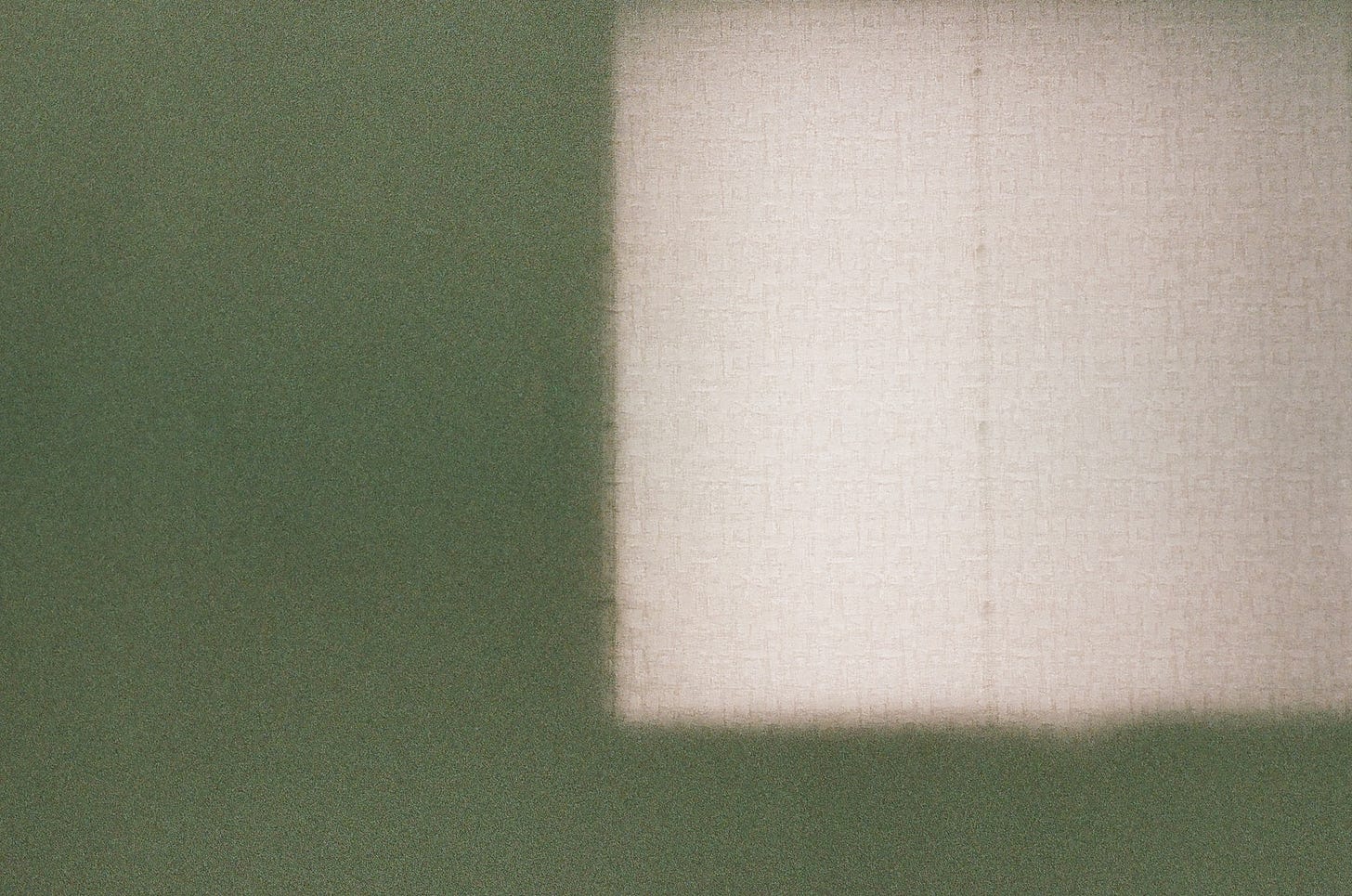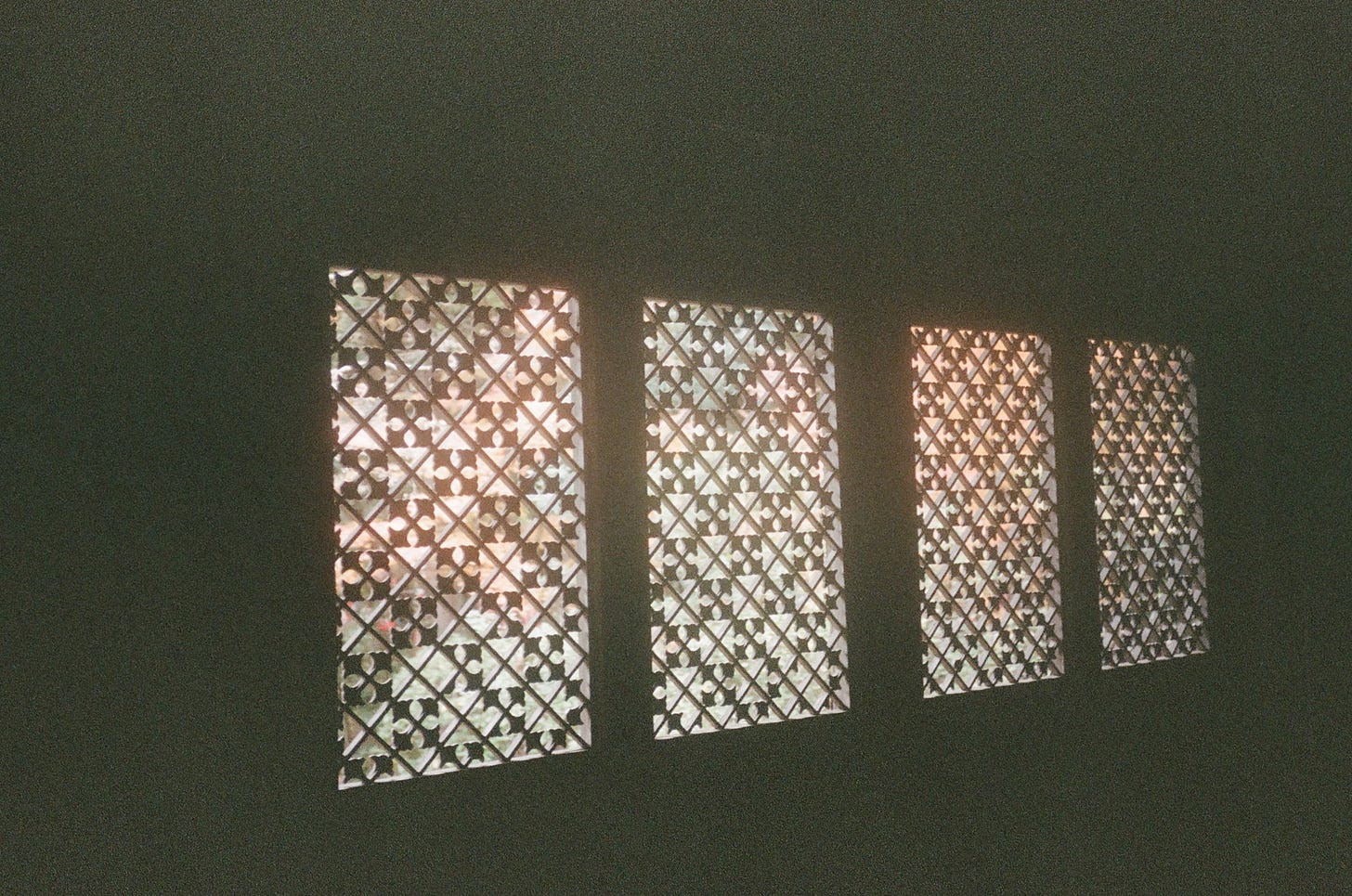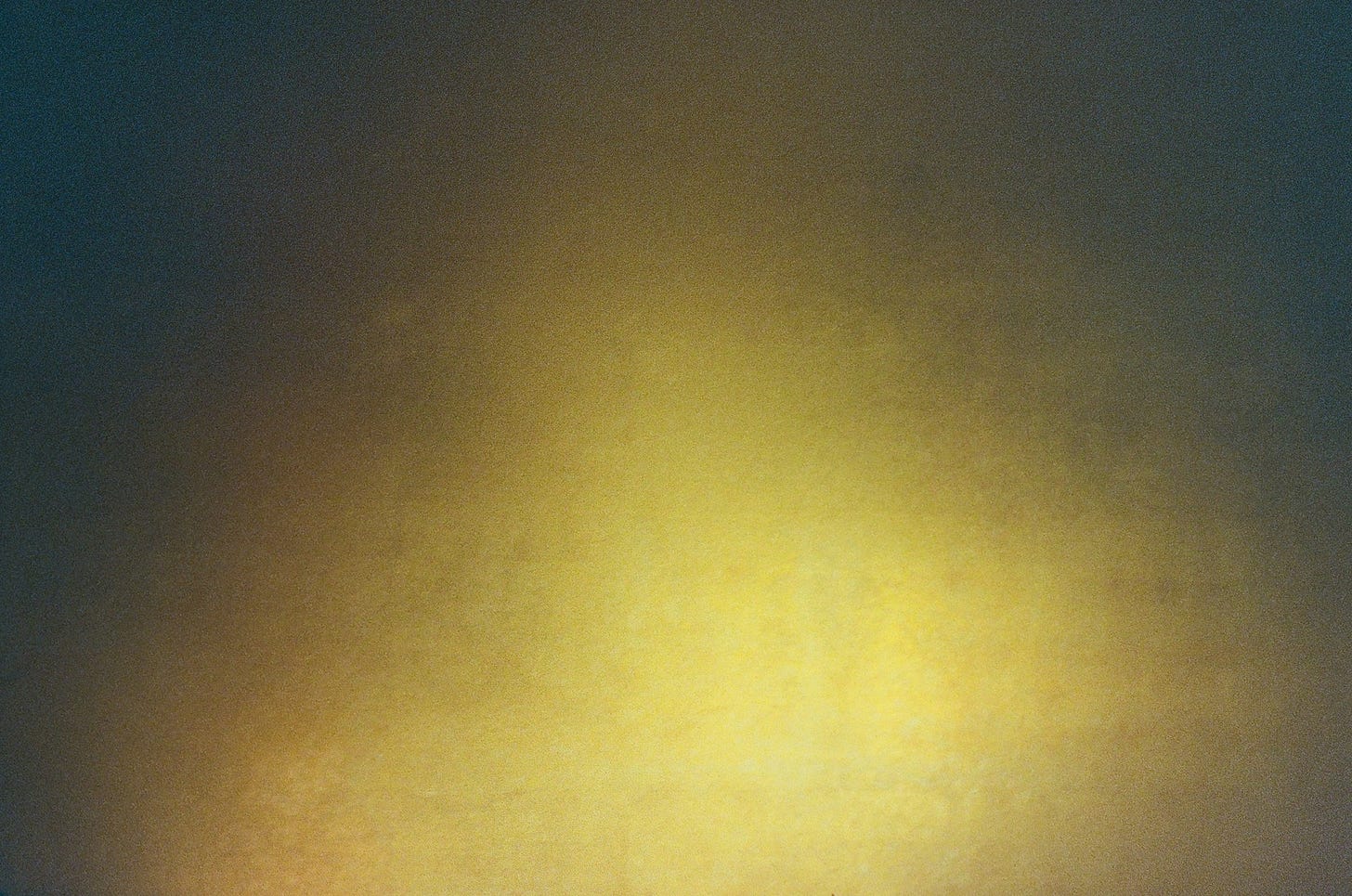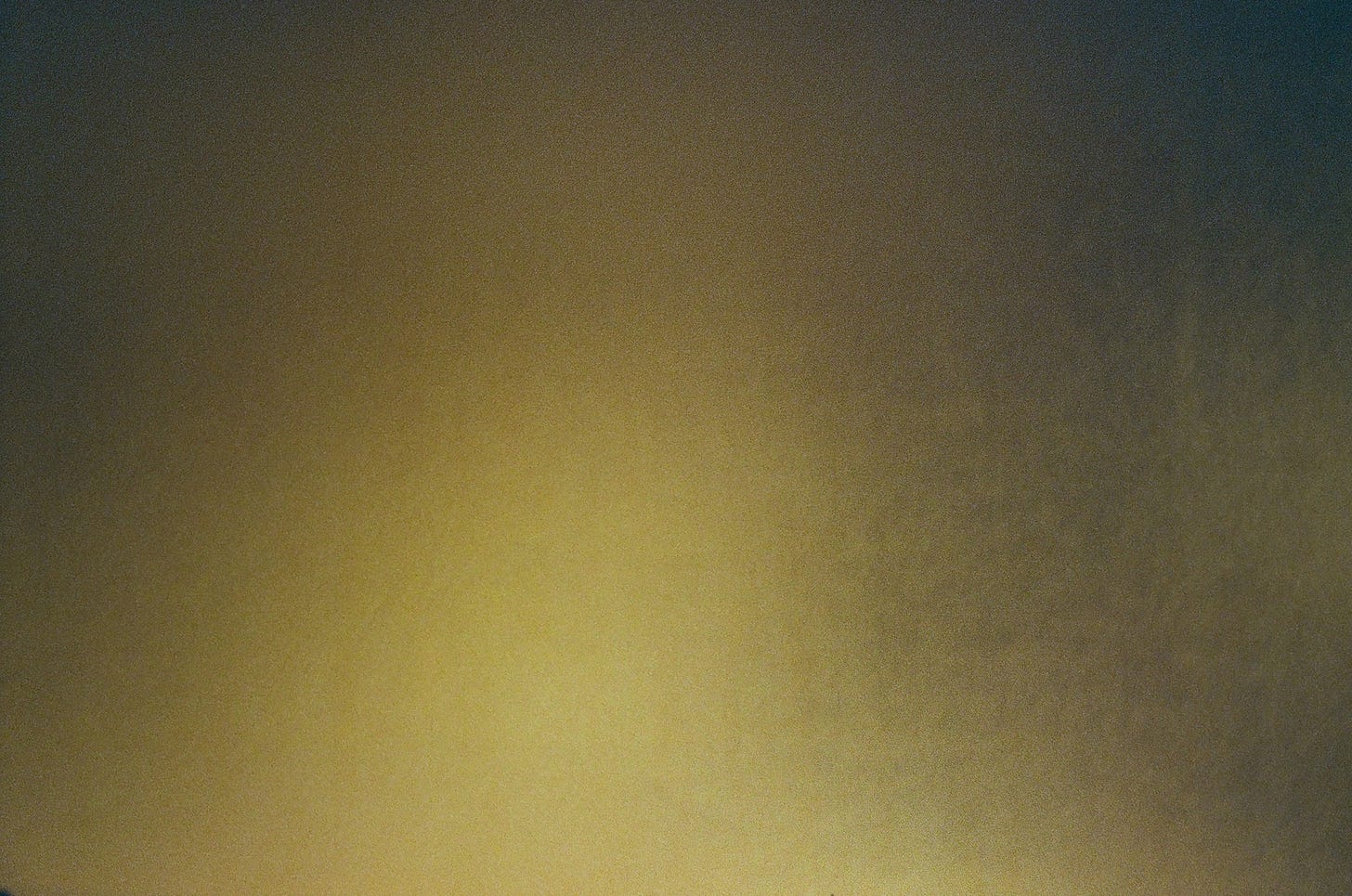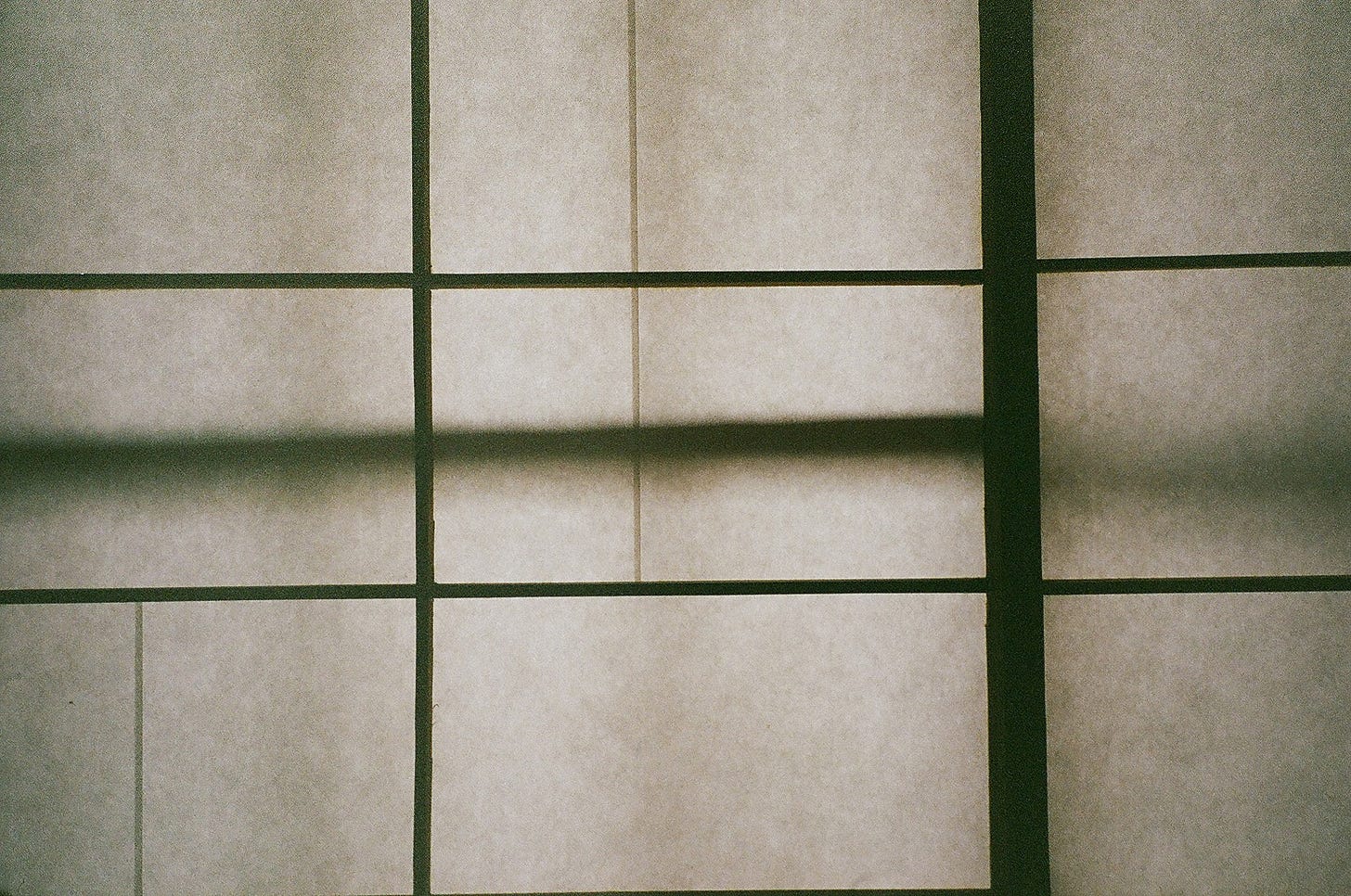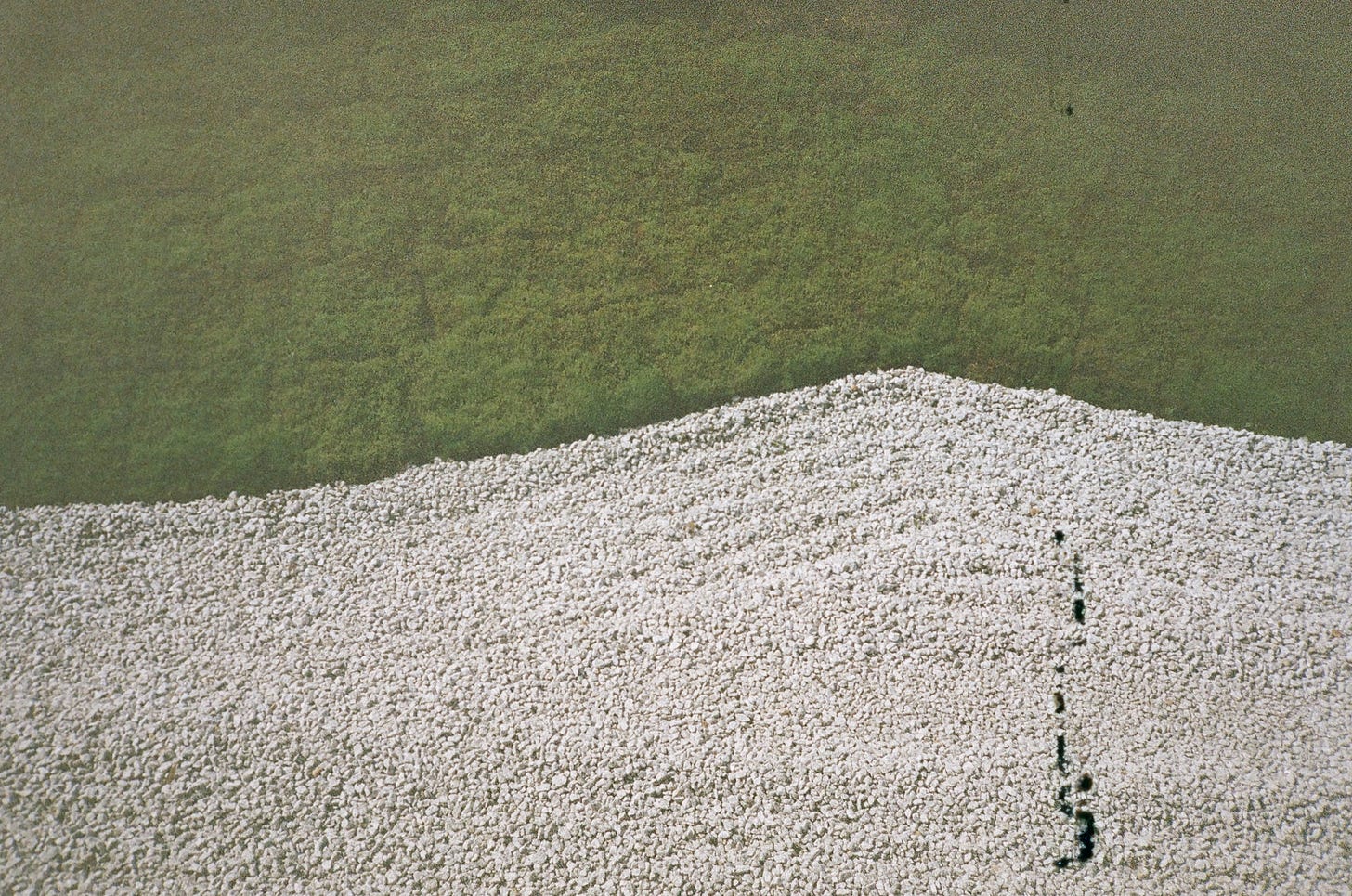In process
Cut #1
Last note before a pause.
Images from my Yashica T4, quotes from Junichiro Tanizaki, In Praise of Shadows.
…the people of today, long accustomed to the bright gleam of electric light, have forgotten the existence of such darkness. That visible darkness of the interior created a mood of something fluttering, shimmering, hallucinatory - often more frightening than the darkness outside.
The style of interior lighting these days has nothing to do with being able to read or write or sew, but is an expense paid solely to erase the shadows from every corner of the room, a way of thinking that is incompatible with the concept of beauty we find in the traditional Japanese room.
To me, there is no more melancholy beauty than the sight of that frail golden glow emerging from the gloom, like a sunset on the distant horizon. I have walked past such a sight, only to return again and again, for as one moves away, the gold on the paper's surface glows even brighter. Not in a busy flickering, dazzling way, but steadily over time, like the changing complexion of a giant's face. As one moves away, we suddenly discover that what was initially the rather dull reflection of the gold leaf begins to gleam as it on fire, and we are faced with the mystery of how so much light is able to be found in these dark reaches.
In other words, gold lacquerware was never meant to be viewed all at once under direct light, but rather to be seen in bits and pieces, a little at a time, as if softly lit from within. The most gorgeous patterns were mostly to be hidden in darkness, to draw out inexpressible feelings and unconscious emotions. In the dim light of a candlelit room, even the most impatient person can be lured into a meditative state, as the reflected light in the glossy lacquer surface flickers with the arrival of each occasional breeze.
What appear to be permanent shadows occupy the nooks created by the wooden frames of each panel of the shoji doors, as if the dust that has gathered there has been indelibly ingrained into the paper itself. I find myself looking in wonder at this dreamlike glow, and a murky haze appears before my eyes as I feel my eyesight weakening.
And, to be sure, it is a cold and lonesome hue of backlight that shines on the rear of the paper panels. Any sunlight from the garden that has struggled to make its way under the eaves and down the long corridors has, by this time, lost its complexion and power to illuminate, and is capable of little more than drawing attention to the pale whiteness of the shoji.
…we must resign ourselves to taking eternal responsibility for the losses that are charged to us. My reason for writing this has been my hope that a path remains, perhaps in the areas of literature or the fine arts, that compensates for those losses. I would evoke the already lost world of shadows - at least in literature's domain. I would deepen the eaves of the temple of literature, darken its walls and push all things ostentatious into the darkness, stripping all unnecessary decorations from the interior.



